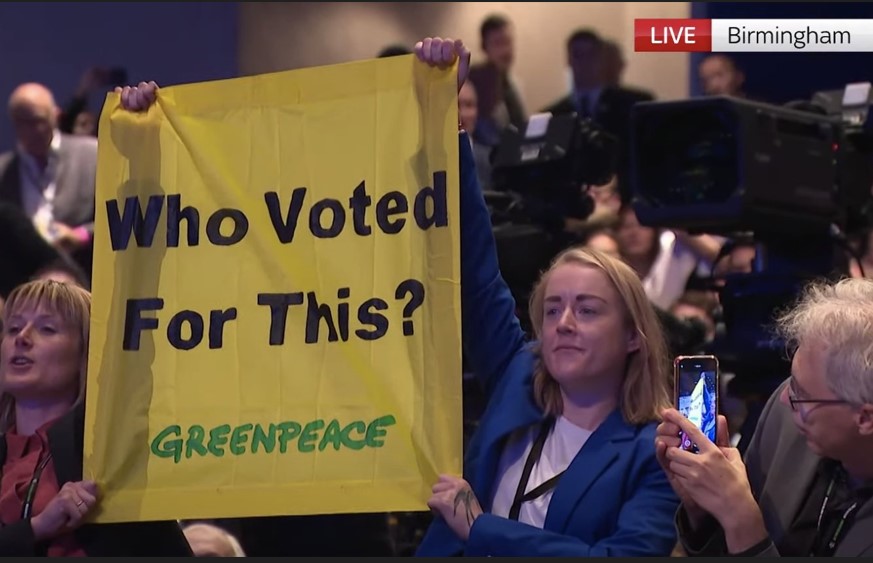The Domain of the Dump: A Story of Stuff
I had a chastening experience the other day. I went to my local municipal dump (aka ‘the recycling centre’), to recycle (or, as it turned out: to dump…) some old carpets that had been covering ground where no growth was occurring, at my allotment. What chastened me was something that I, perhaps like you, somewhere deep down knew was true, but had managed to make myself forget. Namely: how much of our rubbish is still just that. Stuff that cannot be recycled, but is simply destined to be stockpiled, burned, or landfilled.
Almost everything that you can see here is stuff that is quite literally being dumped. It is not even a candidate for recycling (and remember in any case that much of what is supposedly recyclate doesn’t actually get recycled, because in practice it can’t be or simply isn’t; and that all recycling consumes energy; and that some recycling is in any case only ‘linear’, a one-time only affair that gives way next time to: landfilling).
What chastened me, in other words, was something very simple, and very sobering. It was my actually seeing, up close and personal, the un-sustainability of our system. That we will not (thankfully!) be able to sustain a system that profligately wastes so very much. We are still so so far from having anything even beginning to resemble a circular economy. If one thinks of the word ‘decadence’, an image probably comes to mind of rich Romans; but we have democratised decadence. We have made it possible – in fact, almost unavoidable – for almost everyone, including even many of the poor, to live lives that are, by historic standards, lives of excess and of waste.
How can we move away from this unsustainable level of consumption and improvidence to a society and economy with sufficient restrictions on energy- and resource- usage to ensure an even-minimally environmentally-stable future for the generations that will follow ours? How do we communicate effectively with, let alone control, those businesses that prioritise financial expansion over the minimisation of wastage and of energy inefficient products or production? One cause for hope perhaps is the EU legislation on Ecodesign. The EU Ecodesign directive aims to impart legislative rules across Europe for the drastic improvement of the energy efficiency of products. Products such as household appliances must meet mandatory levels of environmental performance that are applicable in all EU countries. The hope is that such product specific requirements will create barriers to the trade of products that are most harmful to our environment, and eliminate entirely those products that are least environmentally performing. Perhaps our wastage crisis could be averted, or at least minimised drastically, if the sustainability of our products becomes something enforced rather than merely encouraged.
These kind of legally-binding restrictions on trade and product design, which would protect us and our posterity, would undoubtedly result in the trade of far more energy efficient products across Europe. Why am I using the subjunctive tense? Because, of course, the basic question facing us in Britain now is whether or not we will be bound by these protective regulations in future. I.e. Will we Brexit, and, if we do, what environmental regulations will we have left.
And in any case, even this Directive is only a start, not yet enough. That is: Whilst the EU Ecodesign Directive may well give us (or at least: Europeans) hope of some progress toward a circular economy, we are as a civilization still very far away from the level of change (beginning with legislative restriction on unsustainable product design) necessary to end our current wastage crisis. Such restrictions and protections will undoubtedly have to be both extended and internationally enacted in order to have anything like sufficient and decisive impact in our world of limited natural assets and for the moment ever increasing populations.
If one wants a picture of our society, perhaps it would be more appropriate, rather than picturing (say) the Houses of Parliament, or a football stadium, or even an agro-industrial farm, to picture, for now: a municipal dump. We really are – we remain – a throwaway society. The domain of the dump.
Only when we have stopped companies from producing stuff to throw away (and that remains what most of our ‘products’, starting with most carpets, are: stuff designed to be discarded), and only when our ‘recycling centres’ really are that (and everything is designed for and actually is re-used, repaired or, at minimum, recycled), and only when we have reduced our footprint so radically that the kind of scene I saw the other day is banished to the history books… only then will we able with pride rather than in falsehood to say: we live in a society that is not destined to collapse; we live in a society that might yet be able to sustain human existence.
Thanks to Owen Bicknell-Currie for vital help researching this piece.

